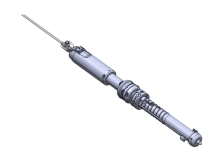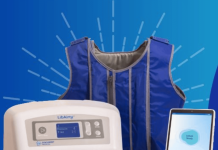BCV has announced major step in the development and evaluation of steerable mechatronic guidewires for stroke treatment – the GECKO System. The first-in-human case was conducted by Michel Piotin, MD, PhD, head of Interventional neuroradiology at Foundation Rothschild Hospital in Paris, France.
Worldwide each year more than 12.2 million people suffer a stroke.1 The estimated global cost of stroke is over $721 billion (USD).1 A key issue in stroke treatment is speed to intervene: each minute represents nearly 2 million lost neurons.2 During stroke intervention, complications can arise that delay access to the clot and cause issues in patient recovery. 3 Current approaches can involve excessive time and devices to obtain access to the stroke location, depending on anatomical complexity.
“Because ‘time is brain,’ at BCV we developed the GECKO – a sterile, Class III single-use steerable mechatronic guidewire intended to facilitate the access and positioning of a catheter to reach the obstructing clot,” said Dr Raphaël Blanc, CEO of BCV.
GECKO was designed to allow faster navigation and reduce complications, especially in tortuous vessels. GECKO is compatible with existing catheters and image-guided platforms and has potential applications in any procedure requiring guidewire access including cardiovascular, urological, gynecological, oncological and bariatric procedures.
RELATED: RAIsonance Releases Preliminary Results from AudibleHealth Dx Validation Study
“Physicians face many challenges with neurovascular pathologies in navigating to the treatment site rapidly and safely,” said Michel Piotin. “GECKO, through its design versatility and electronic navigation, facilitates the management of complex arterial maneuvers, saving time and minimizing device exchanges. We are very pleased to be the first users and look forward to realizing the many benefits of this device on our patients.”
Caution: The GECKO System is an investigational device and is not available for commercial sale, worldwide.
Are you Hiring?




